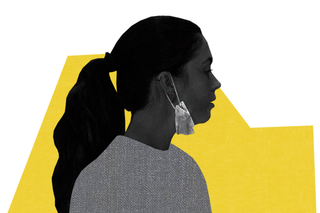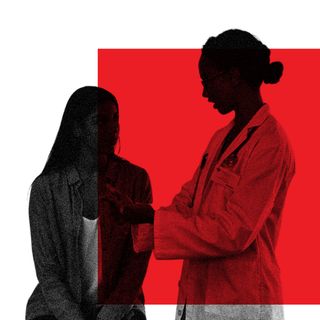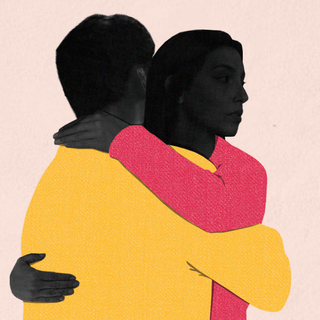
Pandemic May Have Impaired Our Ability to Assess Risks, Finds Study
People may be overweighing unlikely probabilities but underweighting likely ones — like the risk of catching infection by not wearing a mask.

A growing body of research is examining the pandemic’s impact on cognitive abilities. By putting us in a volatile situation where we’re constantly tracking evolving health guidelines while being worried about our health — besides that of our friends and families — the pandemic may have impaired our cognitive abilities, including how people perceive risk, a new study has found.
Ironically, this is “at a time when making the right health choices is critically important,” as Medical Xpress noted.
Published in PLOS One last month, the study found that people may be overestimating the probability of unlikely events but underweighting likely ones — like the risk of catching an infection while not wearing a mask, or sharing a coffee in closed spaces, or perhaps worse, not registering to get vaccinated.
The researchers conducted a series of tests designed to measure people’s cognitive abilities. They discovered that people experiencing greater pandemic-related fears were also dealing with diminished speeds of processing information and a declining ability to retain it. Past research has noted people overestimate the probabilities to catch or die from Covid19, suggesting how comparative pessimism increased during the global health crisis.
Related on The Swaddle:
People Who Feel Invincible to Diseases More Likely to Act in Socially Irresponsible Ways
The researchers are concerned because the “basic cognitive abilities measured here [including risk perception] are crucial for healthy daily living and decision-making,” as Kevin da Silva Castanheira from the department of psychology at McGill University in Canada, who was the first author of the study, pointed out.
“The impairments associated with worry… suggest that under periods of high stress, like a global pandemic, our ability to think, plan, [and] evaluate risks is altered. Understanding these changes [is] critical as managing stressful situations often relies on these abilities,” he explained further.
“[P]eople’s [risk] perceptions changed dramatically during the first few days of the pandemic…,” lead author of a 2020 study, on how the early stages of the pandemic affected people’s risk perception, said in a statement. “A little bit of anxiety is good,” he noted, explaining that “it means that people will be more prudent.” This is because an individual’s assessment of personal risk, resulted in responsible personal behavior.
However, the levels of anxiety that people have begun experiencing now can hardly be described as “a little bit.” Staying isolated while constantly worrying about their health has led to a surge in anxiety for many people around the world. In the process of becoming more anxious, people also become more sensitive to risk. “I generally suffer from anxiety and the past few weeks have made it worse. Especially the fact that I have to be constantly paranoid — I remember one day at work someone approached my desk and came so close that I instinctively flinched and backed my chair away,” Ritisha, a 26-year-old from Jharkhand, told The Swaddle earlier this year.
Related on The Swaddle:
Describing the Pandemic As a ‘War’ Is Ineffective and Dangerous
Human beings are wired to detest uncertainty — studies have shown that people find not knowing what could happen even more stressful than knowing the possibility of something bad happening. So, the feeling of uncertainty the pandemic has ushered in is leading people to constantly seek more information about the virus. At present, for instance, with the news of scientists calling Omicron the “worst variant” they have seen, many are anxiously reading up about it — trying to understand how to avoid the risk of contracting it.
“Excessive information-seeking during this period can lead to high levels of stress…” Barbara Jacquelyn Sahakian and Aleya Aziz Marzuki from the University of Cambridge, who recently co-authored a study on how uncertainty can impair our decision-making abilities, wrote in The Conversation. “Persistent stress from overexposure to distressing news may also cause changes in key brain areas… which are responsible for memory and cognition. This can, in turn, result in reduced rational decision-making, leading us to rely more on emotions.”
Moreover, as the present study notes, pandemic-induced anxiety results in “greater exposure to discussions of risk, which are the current focus of media coverage” — leading us, on occasion, to overweigh unlikely probabilities, like, worrying about contracting Covid19 from one’s pets, perhaps.
Madeleine Sharp, co-author of the study, and assistant professor of neurology at McGill University, believes the next step now is to understand why the pandemic-induced stress has affected different people differently. “An important future direction will be to examine why some people are more sensitive than others to stress and to identify coping strategies that help to protect from the effects of stress,” Sharp noted.
Devrupa Rakshit is an Associate Editor at The Swaddle. She is a lawyer by education, a poet by accident, a painter by shaukh, and autistic by birth. You can find her on Instagram @devruparakshit.
Related


For Endometriosis Patients, Better Communication Could Lead to Faster Diagnosis
